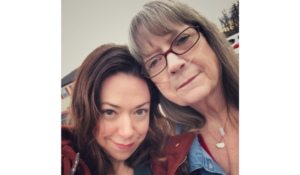We are delighted to bring you this guest blog from Robyn Gobbel, LCSW, who is a therapist specializing in adoption, attachment, and trauma and a founder of the Central Texas Attachment & Trauma Center. Robyn earned a Master’s Degree in Social Work from the University of Utah and holds a Post-Graduate Certificate in Therapy with Foster & Adoptive Families. Trained in EMDR, Trust Based Relational Intervention®, and The ALERT Program, she integrates these modalities into an attachment based, neuroscience supported, and sensory sensitive healing environment for children and their families.
by: Robyn Gobbel
 Compassion {kum – pash – un}- the recognition and CLEAR SEEING of suffering. Compassion involves feelings of kindness for the person who is suffering so that the desire to help end the suffering will emerge. Compassion means we recognize that all humans are flawed and we are in this together. (Kristin Neff, 2011).
Compassion {kum – pash – un}- the recognition and CLEAR SEEING of suffering. Compassion involves feelings of kindness for the person who is suffering so that the desire to help end the suffering will emerge. Compassion means we recognize that all humans are flawed and we are in this together. (Kristin Neff, 2011).
Compassion isn’t too hard to find when others are hurting. My whole job revolves around finding compassion.
Without compassion, I’d sit in my puffy brown therapist chair (it really is brown but it’s not actually that puffy) and stay focused on the myriad of difficult behaviors that walk through my door. Underneath every single one of those maladaptive behaviors- in both the children and the adults- is suffering. And through compassion, I can stay focused on that suffering as a framework for the behaviors. This allows therapy to actually work! When we ease suffering, we see a shift in maladaptive behaviors.
Sometimes easing suffering is as simple (note I said simple- not easy or painless) as shining a light on the suffering, looking at it together, and staying in a non-judgmental place of compassion.
Why is it so difficult to aim compassion on OURSELVES?
When we extend compassion toward others we don’t see it as a pity party. It isn’t woe is you. It isn’t your life is worse than mine. So why is SELF-compassion so intimidating? Why do we fear that if we extend compassion to ourselves for our suffering that we are throwing ourselves a pity party? Or that we are ‘letting ourselves off the hook.’ What if you spoke as kindly and gently to yourself as you did to your best friend?
There is suffering in parenting a child with a traumatized background. You cannot invite that much suffering into your home without that suffering extending to you. Maybe you are experiencing physical suffering due to an attack on your body or because parenting your child has put a tremendous amount of stress on your body and immune system. Certainly there’s emotional suffering- including overwhelming grief and loss- for families who care for, parent, love, and commit to the hurting child.
Consider extending yourself some kindness. Pause for a moment. Place your hand over your heart, and maybe your other hand on your belly. Say to yourself “I’m suffering. This is hard. I feel this pain. I offer myself kindness.”
I’ve been learning and reading about self-compassion through the work of Kristin Neff, PhD- who happens to live nearby and works at UT Austin. Everyone needs self-compassion. You are no exception.


